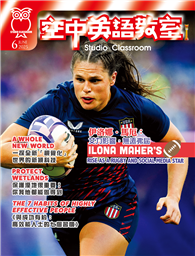Queer futures begin with the body. In Never on Time, Always in Time, Kate McCullough explores how writers summon queer bodily experiences by way of the senses: these experiences have much to tell us about the pasts, presents, and futures of queer life. The author discusses how narrative form and techniques represent the senses in order to open a more expansive temporality for writers and readers. Can queer futures contain the utopic, while also addressing the violence of the past and present? McCullough argues that a narratology that incorporates the senses is integral to conceptions of queer time, which in its most potent, palpable, and radical expression depends on a rendering of the senses. Never on Time, Always on Time looks at works by Monique Truong, Carol Rivka Brunt, Mia McKenzie, and Alison Bechdel to explore how they invoke the senses to narrate what otherwise seems to be non-narrativizable. McCullough thus reveals a vital queer narratology at work, a mode of reading and writing the senses toward a survivable future. She calls this cluster of contemporary texts "narratives of the queer sensorium" and argues that representations of the senses in these texts open new perspectives onto history, futurity, and relationality.
| FindBook |
有 1 項符合
Never on Time, Always in Time: Narrative Form and the Queer Sensorium的圖書 |
 |
Never on Time, Always in Time: Narrative Form and the Queer Sensorium 作者:McCullough 出版社:Ohio State University Press 出版日期:2024-11-22 語言:英文 規格:精裝 / 258頁 / 普通級/ 初版 |
| 圖書館借閱 |
| 國家圖書館 | 全國圖書書目資訊網 | 國立公共資訊圖書館 | 電子書服務平台 | MetaCat 跨館整合查詢 |
| 臺北市立圖書館 | 新北市立圖書館 | 基隆市公共圖書館 | 桃園市立圖書館 | 新竹縣公共圖書館 |
| 苗栗縣立圖書館 | 臺中市立圖書館 | 彰化縣公共圖書館 | 南投縣文化局 | 雲林縣公共圖書館 |
| 嘉義縣圖書館 | 臺南市立圖書館 | 高雄市立圖書館 | 屏東縣公共圖書館 | 宜蘭縣公共圖書館 |
| 花蓮縣文化局 | 臺東縣文化處 |
|
|
圖書介紹 - 資料來源:博客來 評分:
圖書名稱:Never on Time, Always in Time: Narrative Form and the Queer Sensorium
|










